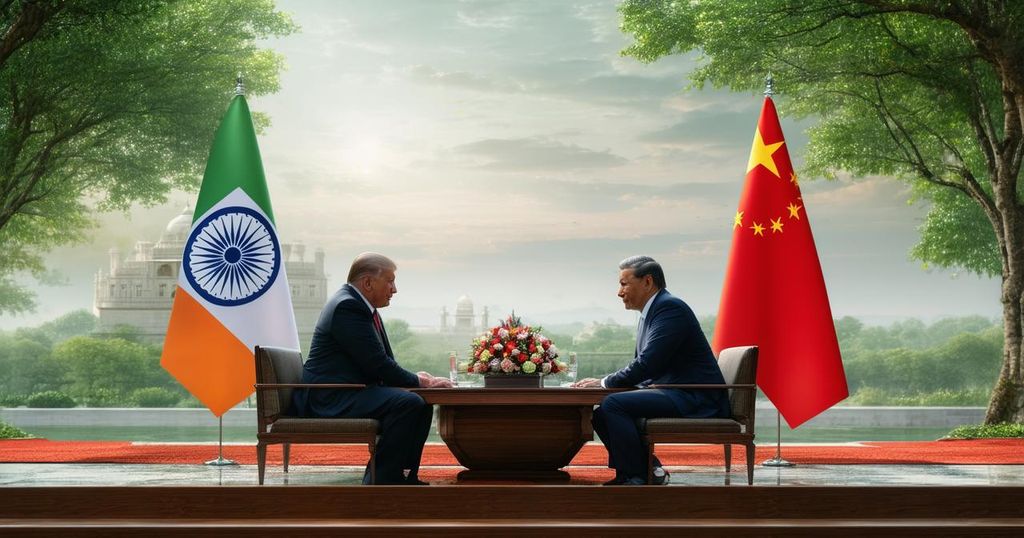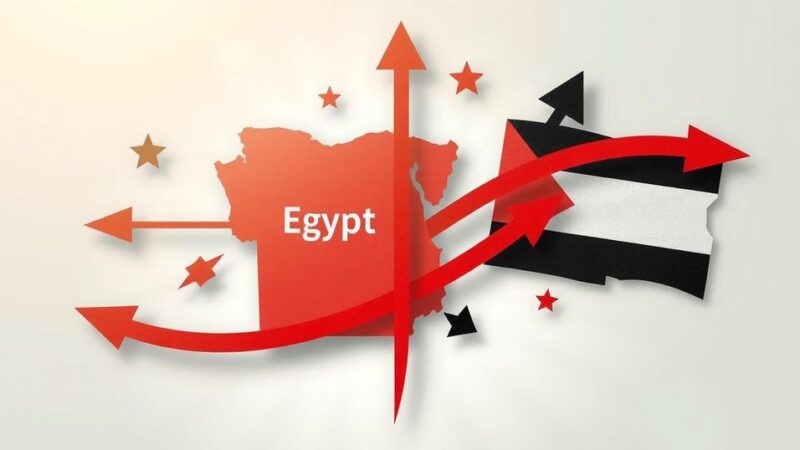Indian Prime Minister Narendra Modi and Chinese President Xi Jinping met at the Brics summit in Russia, marking a thaw in relations after years of tension following border clashes. They announced progress in disengagement along their disputed frontier and committed to restoring dialogue and cooperation. Historical conflicts, particularly since 1962 and the 2020 Galwan Valley clash, have plagued relations. Recent discussions aim to stabilize bilateral ties while considering economic impacts and mutual respect.
After years of tension following a violent confrontation along the contested Himalayan border, Indian Prime Minister Narendra Modi and Chinese President Xi Jinping have formally convened. Their meeting took place on the sidelines of the Brics summit in Russia, marking a significant thaw in relations between the two nations. This development follows the recent announcement of an agreement on the disengagement and resolution of outstanding issues related to their long-disputed frontier. The leaders expressed their commitment to resuming dialogue and have planned a meeting between senior officials to facilitate the resolution of outstanding matters. The relationship between India and China has historically been fraught due to a poorly demarcated border that spans approximately 3,440 kilometers. Various confrontations have occurred over the years, including a war in 1962 and clashes in more recent times. The situation escalated during the 2020 Galwan Valley clash, resulting in the deaths of soldiers from both countries. Since that time, both nations have engaged in a series of military standoffs and skirmishes, significantly straining bilateral relations. The dynamics were further complicated following India’s revocation of Article 370 in 2019 concerning Kashmir, which borders areas of Chinese interest. During this latest summit, it was indicated that approximately 75% of the disengagement at the border has been achieved. The Indian Foreign Minister stated that both countries had agreed to restore border patrols to pre-clash conditions, signaling progress in confidence building. Furthermore, Modi and Xi underscored the importance of maintaining peace along the border, emphasizing that mutual trust and respect should form the bedrock of their relations. There is now a pathway for the special representatives of the two countries to engage in discussions aimed at addressing the boundary question in a fair and reasonable manner. Additionally, there remains a concerted effort from India to balance its security concerns with economic interests, particularly as businesses advocate for eased restrictions on Chinese investment.
The relations between India and China have been marred by centuries of territorial disputes, exacerbated by a series of military confrontations, the most significant of which was the Sino-Indian War of 1962. The border issue has persisted due to the ambiguous delineation along the 3,440-kilometer frontier, complicating diplomatic engagements. Economic interactions have suffered due to geopolitical tensions, with India moving to limit Chinese investment and technological penetration following multiple skirmishes. Recent developments have raised hopes for a stabilized relationship as leaders strive to manage not only territorial disputes but also the broader implications for international relations and cooperation in the Global South.
The recent meeting between Prime Minister Modi and President Xi signifies a potential turning point in India-China relations as both nations appear dedicated to resolving longstanding border issues through dialogue. Progress in disengagement reflects an acknowledgment of past tensions and a desire to restore stability. Highlighting the importance of mutual respect and trust, both leaders are aiming for a constructive future that can positively influence the geopolitical landscape. The ongoing negotiations serve not only to mend bilateral ties but also to enhance cooperation among developing countries on the global stage.
Original Source: www.bbc.com






